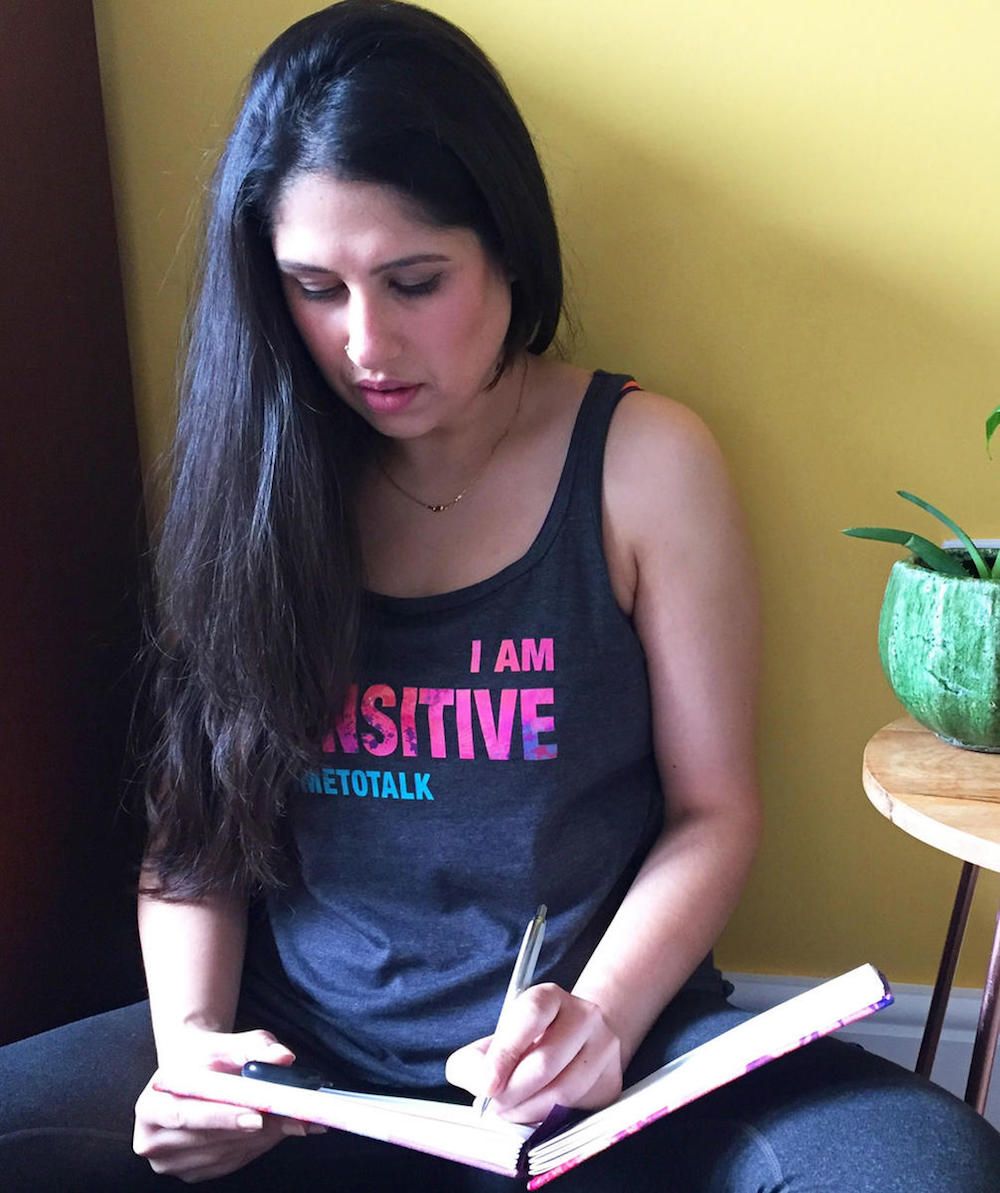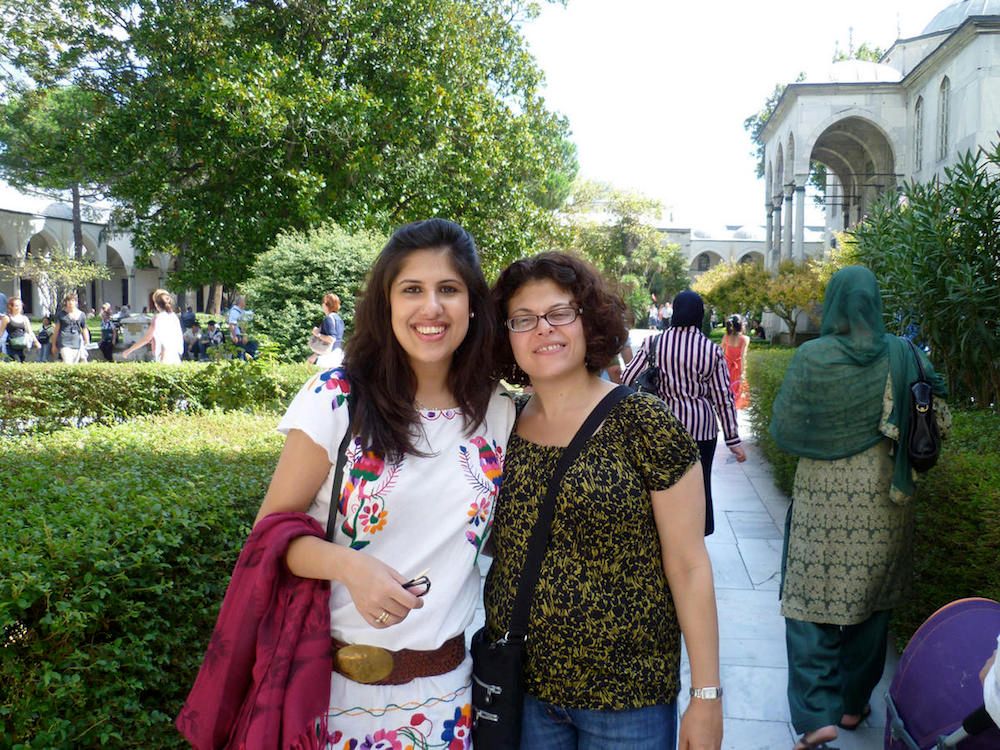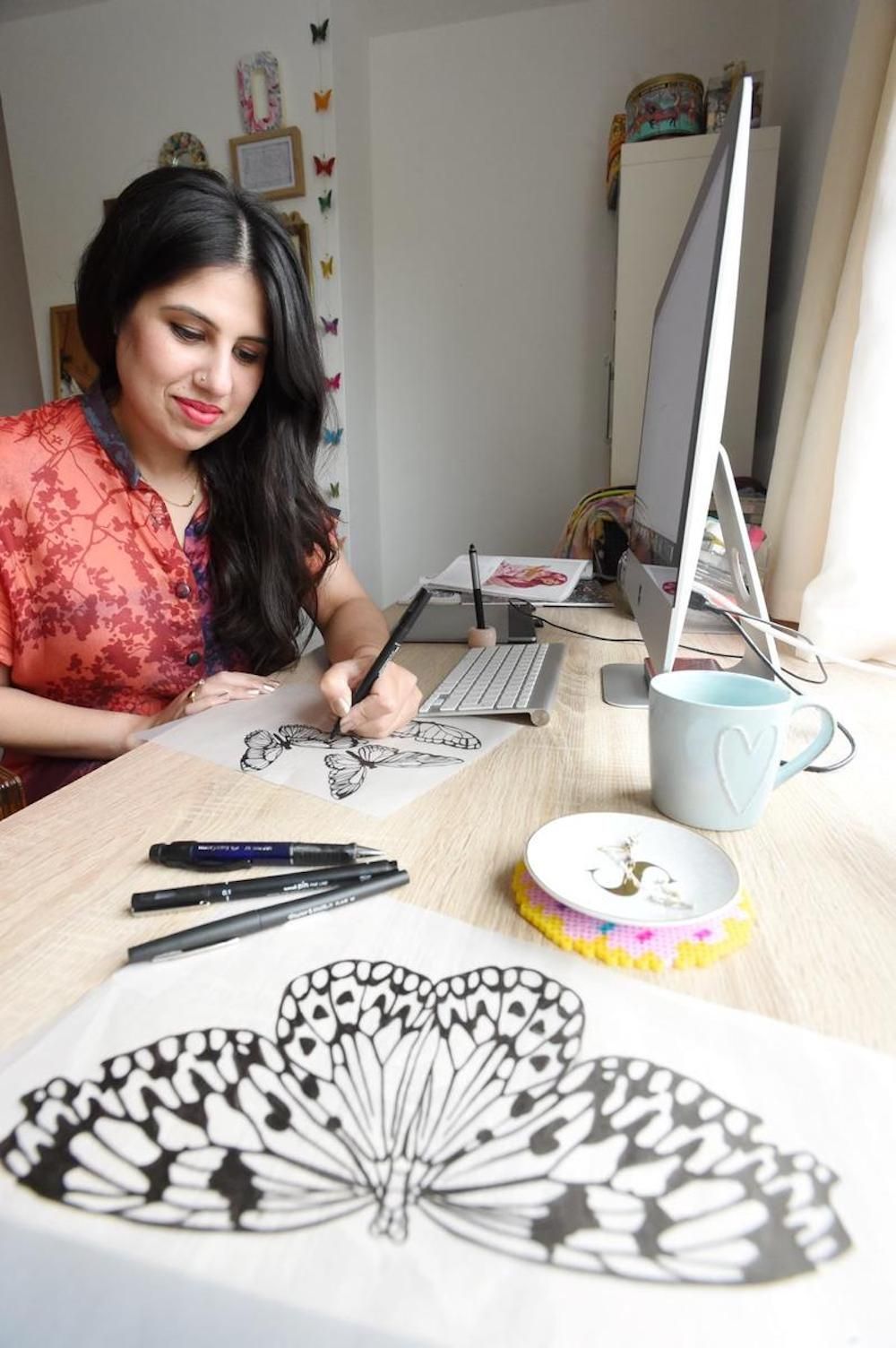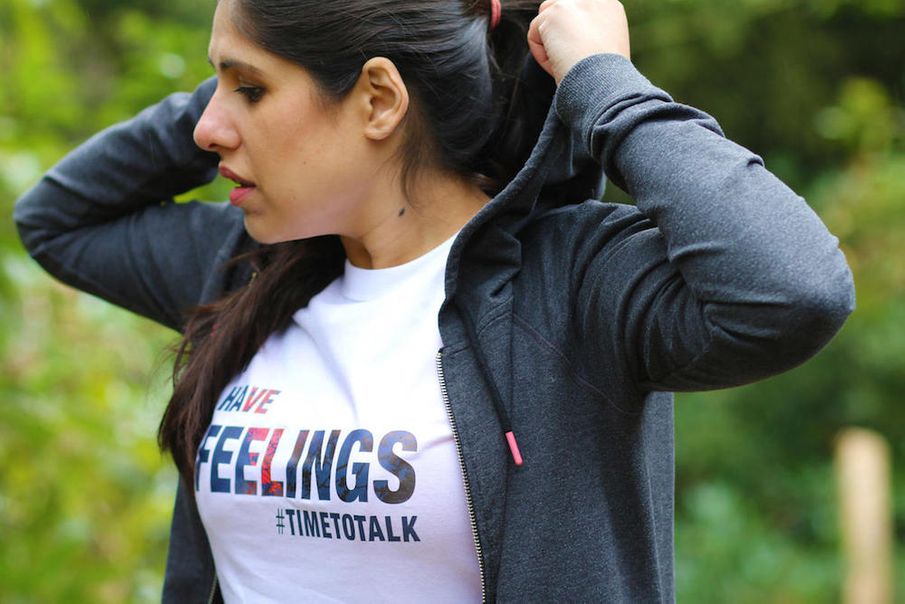Saima always saw herself as a happy-go-lucky character, but it took the insight of a friend to help her recognise her own depression. Through meditation and CBT, Saima found a new lease of life, and wants to encourage us all to follow our own paths
Almost one year ago, I lost one of my closest friends to suicide. Having experienced depression and anxiety myself, I had been no stranger to mental illness, but nothing had prepared me for the raw and dark nature of suicide.
Being from a Pakistani Muslim background, there is a huge emphasis on family values, yet we are not encouraged to express our emotions. This is what our forefathers were accustomed to, and so it has been a pattern that has followed generations.

Saima Majid
My own mental health began to suffer during my time in London. I had arrived more than a decade before, straight out of university, excited, ambitious, adventurous, driven, fresh, naive and curious.
I was about to embark on a new career as a textile designer in the fashion industry. My early years in the capital had been a non-stop adventure. As a creative, and someone who felt like a misfit in my home city of Derby, I finally felt like I could relate to the world around me – which was artistic, dynamic, forward-thinking, diverse, rich, and open-minded.
However as the years went by there was also adversity. During this time, I experienced redundancy, bullying in the workplace, and toxic relationships. Eventually these things took their toll, and began to wear me down. The good times had been enriching, but the bad times were painful, lonely and isolating.
As a young Pakistani female, despite having the most forward-thinking of parents regarding education and career, I had not been taught about boundaries in relationships, or how to protect myself against toxicity and emotional vampires. An important part of the culture taught me to respect everyone, regardless of their behaviour.
Life as a Pakistani is also very much dictated by ‘what the community thinks’, which poses many problems. How can you be yourself and live true to your essence when you are unable to just ‘be’? I had always been a trailblazer with regards to my career and following my dreams, but relationships had been more challenging. Having been a people-pleaser for as long as I can remember, boundaries were an unfamiliar concept, and I found that my energy would become entangled with everyone else’s, and vice versa. I internalised my emotions, set myself high standards, and was hard on myself.
Eventually, this, combined with constantly trying to figure out human behaviour and giving myself to everyone, was bleeding me dry, and life came to a halt.
Feelings of numbness took over. I could sleep for hours on end. I became disengaged with the world around me. I lost my passion for life. I would spend a couple of hours with friends, and then feel emotionally and mentally exhausted, and just wanted to sleep. I lost my identity, and became half a person.

At the time, I didn’t even recognise that I had depression. In fact, I would be the last person ‘I’ would have expected to have it. Not me, the happy-go-lucky, forever optimistic, always telling everyone else that life will be OK sort of person. It was when I began talking to a friend about life in general that she recognised that my self-worth and esteem had completely dissipated.
She suggested that I start meditating and doing the things I loved again, like dancing. Things that would empower me, give me clarity and balance.
In the early days, meditation evoked a lot of emotion, and there were a lot of tears. Looking back, it was no doubt helpful, but I really needed to explore and deal with the feelings that I had managed to bury during my years of ‘being strong’.
Another friend suggested cognitive behavioural therapy. This was the game changer, and combined with journalling every day, and meditating, my road to recovery truly began.
Slowly but surely, I began to heal. I started to see my place and role in the world very differently. I was listening to talks by Oprah, Maya Angelou and Les Brown. I read books by Deepak Chopra, Robin Sharma, Esther and Jerry Hicks, and Eckhart Tolle. They spoke about spiritual enlightenment, living mindfully and in the moment. They suggested looking inwards rather than outwards, and exploring and fulfilling your true purpose. These were concepts unfamiliar to me, but I felt empowered, excited and liberated.
I realised that I had not been using my gifts and my being in the ways that I should have. Beauty and creativity have always been important to me. From fragrance, architecture, art, clothing, dance and movement, I see the value in the things that stimulate all of the senses. I enjoy people, and building and nurturing positive relationships.
I have always had a lot to give, and now felt like I could channel this through empowering others.
I moved back to the city I had left 14 years earlier, however, this time with new-found knowledge, wisdom, experience and fearlessness. I qualified as a personal trainer and set up my textiles business. I was functioning from a very different place. I knew who I was, I understood what my core values were and the people I wanted to surround myself with.

Everything was going well, until life took another turn. My best friend, out of the blue, took her own life.
This friendship had spanned well over a decade, and I had no idea that she had been suffering so deeply. I felt that if I did not do something positive from this tragedy, then her death would have been in vain. And so I began to campaign for awareness about mental health.
My first campaign for World Mental Health Day 2017, showing people of different ages, ethnicities and genders wearing slogan T-shirts that normalised our needs and traits as human beings, was received incredibly well. I was featured in the Derby Telegraph and asked to speak on BBC Radio Derby about the importance of mental health in the Asian community.
Several people contacted me about their own experiences with mental health.
These were individuals I had known for years, yet had no idea what they had been going through. By being transparent about my own life, I was subconsciously giving others the permission to be open about theirs.
Losing my friend taught me that life is a gift, and I was so lucky to have come out the other side. I also took this as a sign that I have a responsibility to reach those who are suffering.
Since last year, I have been raising awareness about mental health through what I do best – design. I donate a part of the proceeds from my clothing sales to Mind.
It is my dream to encourage as many people as possible to live their best life by empowering them to follow their own, and not society’s, expectations.
Fe Robinson | MUKCP (reg) MBACP (reg), psychotherapist and clinical supervisor, says:
Saima’s narrative explores the theme of differentiating from the expectations others place on us, and discovering who we are as individuals. Finding a way to respect and incorporate those aspects of our history that resonate, and the courage to step outside those that limit us, is an important aspect of maturing. Saima’s support network enabled her to find methods to provide growth. The key is finding what fits for us as unique individuals, and trusting the wisdom within.


Comments